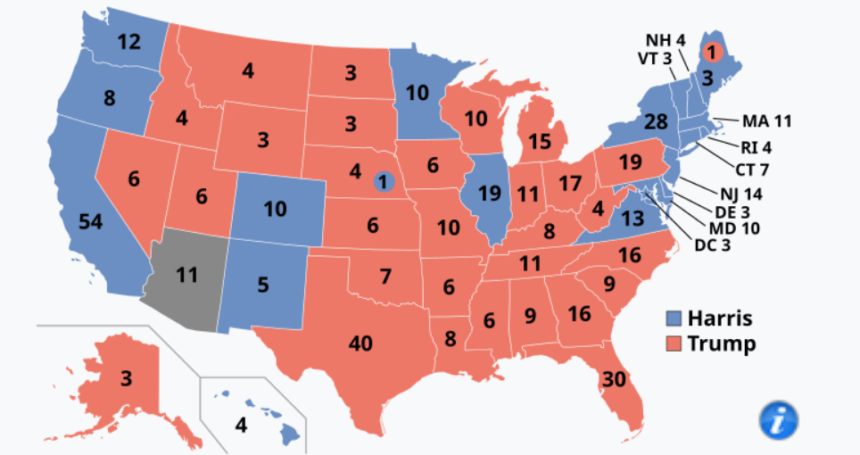last throwaway comment previous post You may have been misunderstood. So today I’d like to offer a more complete interpretation of the market’s reaction to the recent election.
There were a number of important market reactions to this election, including:
1. Significant rise in stock prices
2. Strong dollar
3. Rising interest rates
4. Rising inflation expectations in the TIPS market
I was cynical about how the media treated this as a positive response to the election. I actually think this is a somewhat positive reaction, but it’s hard to reconcile that view with pre-election media commentary on the economic situation.
Over the past year, there have been numerous reports indicating that the public has a very negative view of the state of the economy. When I answered, “But stock prices are at record highs,” I was yelled at. The general view was that people were not interested in a booming job market, rapid GDP growth, or record stock prices. The only thing that matters to the average person is high inflation from 2021 to 2023. (To be clear, this is not my view of the economy.)
And perhaps it’s true! That’s probably all the public cares about, at least for now. However, if this were the case, Wall Street’s reaction to the election was clearly negative, as inflation expectations rose on this news.
So let’s consider why the market reacted the way it did. The jump in stock prices is almost certainly partly related to expectations for lower taxes on corporate income, at least compared to the Democratic option. In that case, this reaction is probably due not only to the election of President Trump, but also to the Republican control of the House and Senate. Before the election, the House of Representatives appeared to be in disarray.
It is also possible that stock prices have risen due to expectations for steady GDP growth. Some of President Trump’s policies (income tax cuts, deregulation) will result in stronger growth, while others (tariffs, immigration cuts, deportation of illegal immigrants) will result in slower growth. This is a mirror image of the Biden era, when high immigration rates led to strong GDP growth even as there was a move toward tighter business regulation.
In my view, the rise in inflation expectations likely reflects the expected impact of tariffs. In principle, the Fed could offset the effects of tariffs, but its “dual mandate” would likely allow at least some tariffs to pass at higher prices.
The strong dollar also reflects expectations for higher tariffs. Tariffs do not reduce the trade deficit (caused by the imbalance between savings and investment) because the dollar has strengthened enough to offset the gains for domestic producers from higher trade barriers.
The rise in interest rates is likely to reflect expectations of a widening fiscal deficit. Both candidates proposed policies that would worsen the deficit, but Mr. Trump’s proposal was more extreme, primarily because he supported significantly lower corporate and personal income taxes, at least compared to the Democratic alternatives.
Stock prices continue to rise even after the election results are known. (By the way, I think the markets figured out almost immediately that the Republicans took control of the House, even if the media didn’t judge it until more votes were counted.) The markets were slow to react because Trump I think that this is partly a reflection of subsequent statements made by some of the people involved. More radical proposals, such as higher tariffs, could be sent back or used as a negotiating tool.
Market reactions are always provisional. They reflect changes in market valuations based on investors’ best guesses about a company’s value before and after the news. But nothing is final. As news continues to come in as the new administration’s plans become clearer, markets will continue to evaluate that news and reprice assets based on new information.
PS. I was a little disappointed to see Fannie Mae and Freddie Mac stock prices skyrocket on election news. I have long been in favor of abolishing these examples of crony capitalism, but it seems likely that we could actually receive more government support. I’m worried that the moral hazard problem in the financial system will get even worse.







